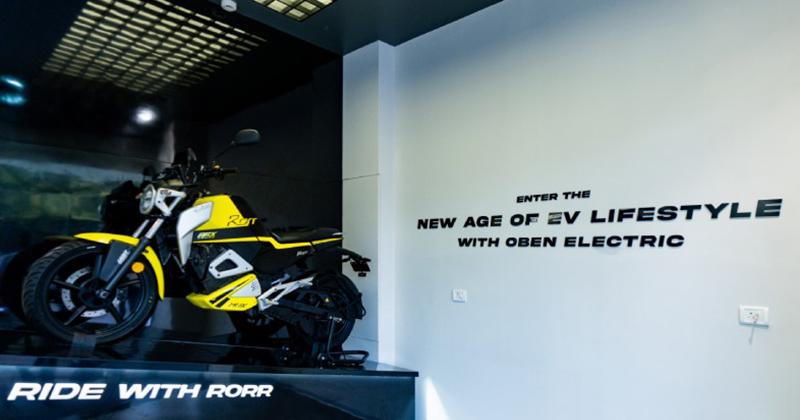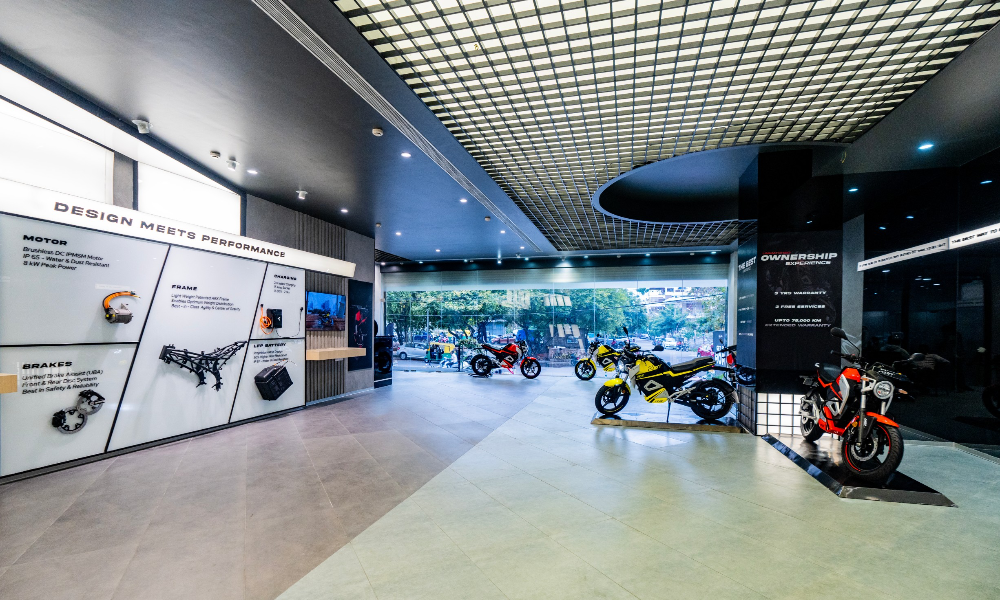- ALL
- TRENDING
- PERFORMANCE
- CHARGING
- BATTERY
- DESIGN
- TECH
- NEWS
Innovative Designs and Materials in E-bike Manufacturing

Table of Contents
As we stand on the brink of urban congestion and pollution, the future of transportation looks electric. In addition to being eco-friendly, electric vehicles also prove to be more cost-effective for the buyer in the long run. Electric bike manufacturers in India are fast responding to the market demand for innovative, sustainable, and tech-enabled vehicles.
The government has also been quick to back this trend with initiatives such as the Faster Adoption and Manufacturing of Electric Vehicles (FAME) subsidy, which is currently in its second phase.
To attract bikers and stand out from the crowd, e-bike players in India are focusing on incorporating innovative designs and materials in their models.
Elevating the Riding Experience with Innovative Designs
The E-bike designs we see at present reflect a seamless fusion of form and function. Redefining mobility, electric bike manufacturing companies in India, such as Oben Electric, are elevating the riding experience with modern and ergonomic designs.
1. ARX Frame
The Oben Rorr’s ARX frame is a testament to excellence in engineering. This is an innovative bike frame designed especially for the Oben Rorr. The design ensures higher stability and a lower centre of gravity, making it possible for bikers to glide through the traffic effortlessly. This frame lends a high degree of endurance and sturdiness to the Rorr, perfect for withstanding the harshness of different terrains, weather types, and roads.
2. Neo-classic Look
The Oben Rorr e-bike designis marked by a timeless neo-classic look that will not go unnoticed on the road. Evocative and elegant, the trendy retro vibe is truly unique in India at present.
3. Comfortable Ergonomics
Incorporating the latest design elements doesn’t mean the Rorr compromises on comfort. This e-bike is designed in line with the leading principles of ergonomics - comfort, safety, and ease of use. With a comfortable leg position and seating posture, you’re bound to experience smooth journeys, be it on short or long rides.
4. Tactical dimensions
A longer wheelbase and optimal rake come together to create a well-balanced vehicle in the Oben Rorr. These precisely crafted tactical dimensions optimise performance and stability for the Rorr’s rider.
Materials Used in E-bike Manufacturing
The choice of materials for manufacturing e-bikes is determined by various factors such as performance, safety, and cost-effectiveness. Environmental considerations, market demand, and manufacturing feasibility also come into play. To design sustainable and efficient EVs, electric bike manufacturers in India are deploying a variety of materials in their models.
1. Carbon Fibre Composite
Carbon fibre components have a key role to play in making EVs sustainable and efficient. This composite material made of carbon fibres and resin is stronger and lighter than other metals, making it ideal for designing light-weight vehicles with good structural integrity. Known for its high strength-to-weight ratio, carbon fibre composite is also corrosion and heat-resistant.
Carbon fibre is used for reducing the weight of the e-bike’s battery pack and improving cooling. This, in turn, reduces the vehicle’s overall weight and improves efficiency.
2. Aluminium
Exhibiting the strength of steel while being significantly lighter, aluminium is a popular choice among electric bike manufacturers in India. While traditional ICE vehicles rely on heavy steel frames, EVs need lightweight materials for optimising range and efficiency. A cost-effective and eco-friendly material, aluminium lends durability and sturdiness to the vehicle while minimising weight. Aluminium also has good thermal conductivity, which helps to properly dissipate the heat generated by the motor and the vehicle's battery. Moreover, aluminium is highly recyclable, making it a practical choice for e-bike manufacturing.
3. Thermoplastic Polymers
Thermoplastic polymers are mouldable at high temperatures and solidify on cooling. These materials offer properties such as corrosion resistance, thermal resistance, lightness of weight, low moisture absorption, and high resistance to chemicals and solvents.
Because they can be melt-processed and reformed with ease, they have a lot of use cases in the automotive industry. In electric bikes, thermoplastic polymers are used to make headlights, pedals, front panels, mud guards, rear lights, seat covers, etc.
4. Lithium-ion Batteries
Lithium-ion batteries are commonly used in e-bikes as they offer higher energy density, discharge tolerance, and a longer life cycle. They also enable fast charging and efficient energy conversion, consuming less power when charged or discharged. Moreover, they can hold their charge for extended periods and have a stable voltage output. Besides producing fewer emissions and pollutants, lithium-ion batteries have the necessary safety features, preventing overheating and overcharging.
The Oben Rorr’s battery features a combination of the latest Lithium Ferrous Phosphate (LFP) cell tech and the company’s proprietary Maximum Heat Exchange (MHX) technology. This means riders enjoy up to 50% higher temperature resistance to manage heat at high speeds and in harsh weather conditions.
To sum up
Innovations in e-bike design and materials are pivotal to the creation of more sustainable and efficient models byelectric bike manufacturing companies in India.
The world of EVs is being shaped by a blend of advanced materials, cutting-edge designs, and vision. The Oben Rorr stands as the forerunner of a greener, more empowered future, redefining the riding experience with an amalgamation of revolutionary technology and unbeatable design.
To test the Rorr, book your ride on the Oben Electric website today!




